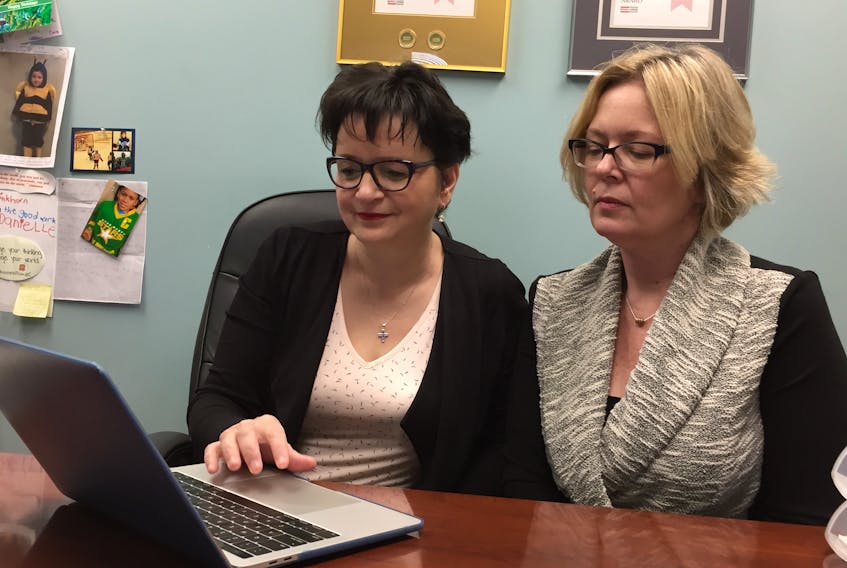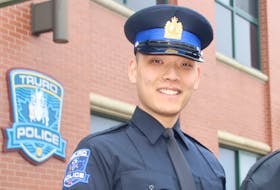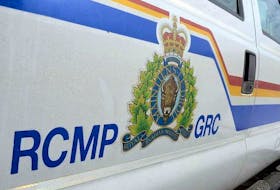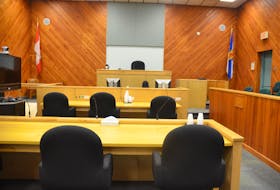At first glance, Sherry Blinkhorn is a successful New Glasgow realtor working out of a brightly decorated office in charge of a cheerful team.
She is certainly not the sort of person you’d think has post-traumatic stress disorder, a condition that most people think only affects soldiers, refugees, or first responders.
But PTSD touches Blinkhorn’s life all the same, after she survived a house fire that brought back some nasty childhood memories.
“PTSD isn’t always born on the battlefield,” said Blinkhorn.
That is the name of a new campaign being launched by the Mental Health Foundation of Nova Scotia and spearheaded by journalist-turned advocate Starr Cunningham.
The campaign was born after a certain Dave Sullivan reached out to Cunningham. As he was not a military veteran, there were no resources available to help him, and even his own father was confused by his condition.
Sullivan teamed up with creative partner Jeff Simpson to help launch the campaign that the Mental Health Foundation is now on board with.
Indeed, civilians with PTSD are often dismissed by doctors as just having ‘an episode’ and are afraid to come forward.
Both Cunningham and Blinkhorn said the purpose of their mission was in no way disrespectful of those in the military.
Indeed, Cunningham said the response of military members to their PTSD campaign “has been positive.”
“It does not discriminate. It affects people of all genders, races and socioeconomic backgrounds. No one is immune,” Cunningham told The News.
While many people still associate PTSD with survivors of war or genocide, it can easily be triggered by traumatic events experienced by many people far away from war zones.
This can include child molestation and abuse, sexual assault, domestic violence, terrorist attacks, natural disasters and surviving major accidents, to name a few causes.
“It is everyday people who have PTSD,” said Blinkhorn.
PTSD symptoms can include intrusive and upsetting memories of a traumatic event, nightmares, feelings of intense distress when reminded of the trauma and flashbacks, when a person feels like the event is happening again.
Many sufferers also feel physical symptoms such as a pounding heartbeat, rapid breathing, nausea, or muscle tension.
Medical professionals first started taking note of PTSD during the First World War, when soldiers in the trenches were crippled by what was then called ‘shell shock.’
Many soldiers returned home displaying symptoms of PTSD after the war, often seen as cowards for being unable to fight anymore, or in some cases even to speak.
Soldiers displaying such symptoms were seen again in the Second World War and also later conflicts such as those in Vietnam, Bosnia and Afghanistan.
One hundred years after the First World War, people are slowly recognizing that PTSD can also affect civilians who have never been on a battlefield.
“Trauma is trauma is trauma,” said Blinkhorn.









